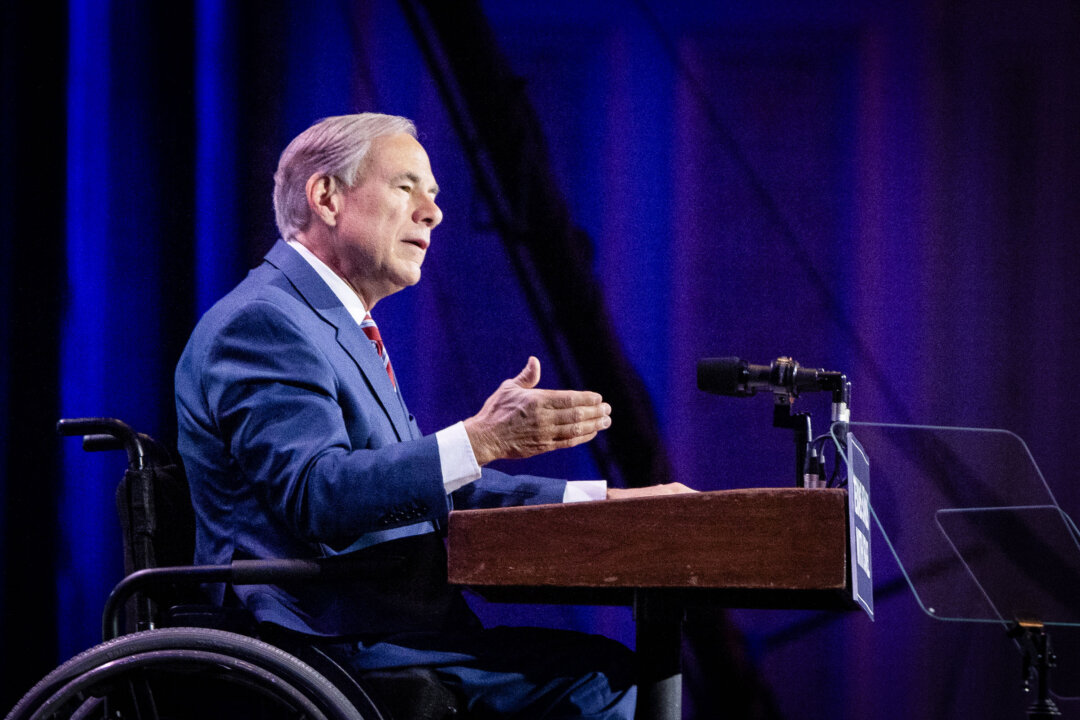Abbott’s divestment directive is the latest in a string of orders he issued this week to protect Texans from CCP influence.
Texas Gov. Greg Abbott on Nov. 21 ordered all state agencies to conduct risk assessments and withdraw state funds from investments in China.
“I direct Texas investing entities that you are prohibited from making any new investments of state funds in China,” Abbott wrote in a letter to agencies. “To the extent you have any current investments in China, you are required to divest at the first available opportunity.
“As Chinese aggression against the United States and its allies seems likely to continue, the financial risk associated with holding investments in China will also rise.”
Last year, the governor called on state universities to divest themselves of Chinese investments, and he and other governors called on investment management company Vanguard to put state money in funds that do not invest in China.
Abbott said the Chinese Communist Party (CCP) is a foreign adversary to the United States and pointed to its “belligerent actions” in the Indo-Pacific region as a destabilizing factor that increases financial risk.
China’s economy under the CCP is not a free market economy, as industries operate to meet the Party’s goals rather than market demand. It is also notoriously opaque, allowing foreign investors only limited access to data.
Experts have warned that Chinese investments are inherently risky because they tend to be held through variable interest entities (VIEs). This means investors do not have legal ownership of the assets they have invested in, leaving them vulnerable to regulatory changes or legal disputes in China. Instead, investors have an agreement with an offshore entity, which has a profit-sharing agreement with the company in which the investors are trying to hold stock.
Further, the risk associated with VIEs is high because they are technically illegal in China. If Beijing chooses to crack down on the use of this structure, Western investors could immediately lose trillions.
At a congressional hearing in September last year, several experts provided examples of stocks listed in the United States through VIEs and explained how they have previously failed investors.
For example, although Alibaba and Baidu are currently listed on the New York Stock Exchange, when investors purchase their stocks, they are actually buying ownership in an offshore shell company. This shell company receives a portion of Alibaba’s or Baidu’s profits, but investors do not have any legal claim to either company’s actual assets.
The 2021 Archegos Capital Management scandal involved the use of VIEs. On Nov. 20, a U.S. district judge in Manhattan sentenced the fund’s founder, Sung Kook “Bill” Hwang, to 18 years in prison over fraud that cost investors more than $10 billion. Archegos had purchased several U.S.-listed Chinese stocks, including GSX Techedu, when the Chinese regime decided to target the online education sector, massively shrinking the company.
Abbott’s divestment directive is the latest in a string of orders he issued this week to protect Texans from CCP influence.
On Nov. 20, Abbott issued an executive order directing all state agencies and colleges to shore up their systems to safeguard “critical infrastructure, intellectual property, and personal information from being accessed by hostile foreign nations that attempt to infiltrate Texas,” highlighting the cybersecurity threat from the CCP.
On Nov. 19, the governor signed an executive order to protect Texans from the CCP’s espionage operations.
On Nov. 18, he issued an executive order that would allow the Texas Department of Safety to target and arrest individuals working under the direction of the CCP to try to forcibly repatriate dissidents to China. Texas is home to more than 250,000 people of Chinese descent, the governor said, and dissidents are a prime target of the CCP.

